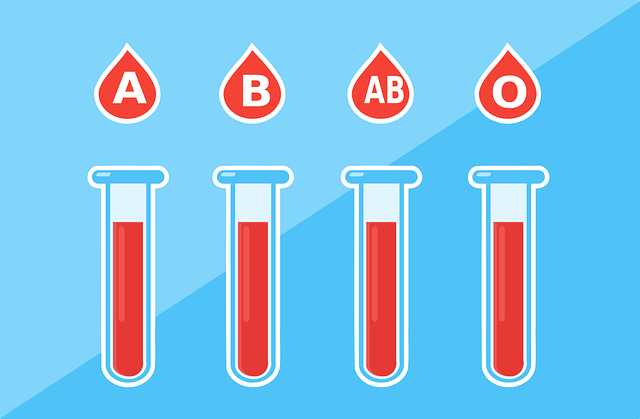The ferritin blood test UK is a pivotal tool for monitoring vitamin D levels, which are essential for maintaining bone health, supporting immune function, and overall well-being. Given the UK's limited sunlight exposure, especially during winter months, this test becomes even more important as it provides an indirect measure of vitamin D through serum ferritin concentration, a direct correlation existing between vitamin D and ferritin levels in the bloodstream due to vitamin D's fat-soluble nature. Healthcare professionals utilize this test for early detection of deficiency or insufficiency, enabling timely medical intervention and supplementation if necessary. Adequate vitamin D levels, as indicated by a ferritin level between 23 to 154 ng/ml, support strong bones and bolster the immune system. UK residents should consider lifestyle and dietary changes to manage their vitamin D intake, including spending time outdoors during peak sunlight hours, consuming vitamin D-rich foods like oily fish, fortified cereals, and egg yolks, and possibly taking supplements. Regular ferritin blood testing is a cornerstone of preventive healthcare in the UK, ensuring that individuals maintain optimal vitamin D levels amidst the country's environmental challenges.
vitamin d, ferritin blood test, health, wellness, uk, nutritional status, sunlight exposure, bone health, immune system function, dietary recommendations, lifestyle changes
Vitamin D is often hailed as the ‘sunshine vitamin,’ a critical nutrient that plays a pivotal role in maintaining our overall wellness. Its importance extends beyond bone health, influencing the immune system and contributing to a host of physiological processes. In the UK, where sunlight is less abundant, ensuring adequate Vitamin D levels is more than a seasonal concern—it’s a year-round imperative for good health. The ferritin blood test emerges as an invaluable tool in this context, offering a clear window into one’s Vitamin D nutritional status. This article delves into the significance of this test, its scientific underpinnings, and how it can guide UK residents towards informed dietary and lifestyle adjustments for optimal health. Understanding the role of Vitamin D through ferritin blood testing is not just a step towards wellness—it’s a commitment to a healthier life in the UK.
- Understanding the Role of Vitamin D in Health: A Comprehensive Guide to Ferritin Blood Testing in the UK
- The Science Behind the Ferritin Blood Test: What It Reveals About Your Vitamin D Levels and Overall Wellness
- Navigating Vitamin D Insufficiency: How the Ferritin Blood Test Can Inform Dietary and Lifestyle Changes for Optimal Health in the UK
Understanding the Role of Vitamin D in Health: A Comprehensive Guide to Ferritin Blood Testing in the UK

In the realm of health and wellness, vitamin D plays a pivotal role in maintaining bone health, regulating cell growth, and influencing immune function. Adequate levels of this ‘sunshine vitamin’ are crucial for optimal body functioning. Understanding the role of vitamin D is essential for individuals seeking to enhance their overall well-being. In the UK, one of the most reliable indicators of a person’s vitamin D status is the ferritin blood test, which measures the amount of ferritin—a protein that stores iron in the body—in the bloodstream. This test is widely available through the NHS (National Health Service) and private healthcare providers across the UK. It serves as a proxy for vitamin D levels because vitamin D is fat-soluble and directly associated with serum ferritin concentration. The ferritin blood test UK is particularly important given the country’s northerly latitude, which often leads to lower exposure to sunlight during winter months, thus reducing the body’s ability to synthesise vitamin D naturally. This test allows for the early detection of vitamin D deficiency or insufficiency, enabling timely intervention and supplementation if necessary. It is a critical tool for healthcare professionals to assess an individual’s nutritional status and to provide personalised health recommendations. For those looking to monitor their vitamin D levels in the UK, understanding the nuances of ferritin blood testing is key to making informed decisions about their health and lifestyle choices.
The Science Behind the Ferritin Blood Test: What It Reveals About Your Vitamin D Levels and Overall Wellness

The ferritin blood test, widely available in the UK, serves as a reliable indicator of an individual’s vitamin D levels and overall wellness. Vitamin D is synthesised in the skin upon exposure to sunlight and is pivotal for calcium absorption, bone health, immune function, and gene expression, among other physiological processes. Ferritin, a protein found in nearly all cells, stores iron and is an inflammation marker; its levels in the blood can reflect vitamin D sufficiency or deficiency. The test measures the amount of ferritin in milligrams per litre (mg/L), with higher concentrations typically associated with adequate vitamin D reserves. In the UK, where sunny days are less frequent, ensuring sufficient vitamin D levels can be challenging for many individuals. A ferritin blood test result within the range of 23-154 ng/ml (or 38-269 mcg/L) suggests optimal vitamin D status, promoting bone strength and supporting the immune system’s defence against illnesses. Conversely, levels below this range may indicate a need for dietary supplementation or increased sun exposure to maintain health and prevent conditions such as osteomalacia or influence the risk of developing severe COVID-19 complications. The ferritin blood test is a valuable tool in assessing one’s vitamin D levels, which, when maintained within the recommended range, contributes significantly to overall wellness, making it an essential component of preventive healthcare in the UK.
Navigating Vitamin D Insufficiency: How the Ferritin Blood Test Can Inform Dietary and Lifestyle Changes for Optimal Health in the UK

In the UK, maintaining optimal levels of Vitamin D is crucial for overall wellness, given the country’s often cloudy climate which can limit sunlight exposure, a key source of this vitamin. Understanding one’s Vitamin D status begins with the ferritin blood test, an essential diagnostic tool that measures the body’s stored iron, but also indirectly reflects Vitamin D levels. This test is widely available through the NHS and private healthcare services across the UK. A low ferritin level can indicate Vitamin D insufficiency, prompting individuals to consider dietary modifications or supplementation to increase their Vitamin D intake. Foods such as oily fish, fortified cereals, and egg yolks are rich sources of Vitamin D2 and D3, the two forms of the vitamin. Lifestyle adjustments might include spending more time outdoors, especially during peak sunlight hours, to enhance natural Vitamin D production in the skin. For those with consistently low levels, healthcare providers may recommend dietary interventions coupled with appropriate supplementation to achieve and maintain adequate Vitamin D levels, thereby supporting bone health, immune function, and overall well-being. The ferritin blood test serves as a pivotal point of information for individuals to make informed decisions about their diet and lifestyle, ultimately guiding them towards a path of optimal health in the UK’s unique environmental context. Regular monitoring of Vitamin D levels through this test can help maintain a healthy balance, ensuring that one’s wellness plan remains effective over time.
In conclusion, the ferritin blood test emerges as a pivotal tool for assessing vitamin D levels and overall wellness in individuals within the UK. By understanding the science behind this test, one can make informed dietary and lifestyle changes to address any deficiencies and promote health. Regular monitoring through ferritin blood testing, easily accessible across the UK, ensures a proactive approach to maintaining optimal vitamin D levels, which are critical for bone health, immune function, and general wellbeing. It is advisable for individuals to consider this test as part of their regular health screenings, thereby taking a significant step towards understanding and enhancing their health status.
